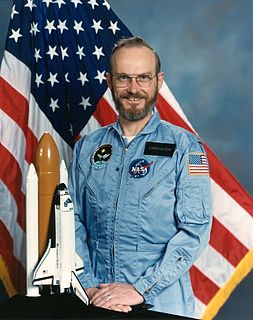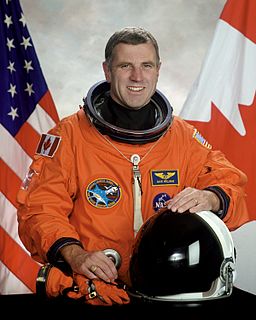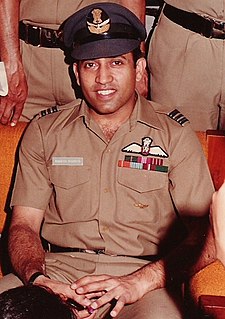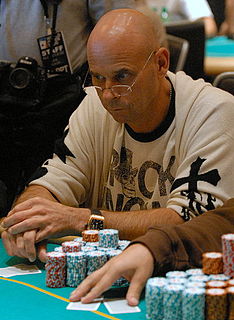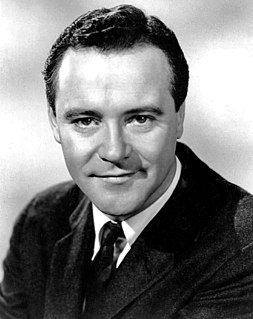A Quote by Loren Acton
Looking outward to the blackness of space, sprinkled with the glory of a universe of lights, I saw majesty-but no welcome. Below was a welcoming planet. There, contained in the thin, moving, incredibly fragile shell of the biosphere is everything that is dear to you, all the human drama and comedy. That's where life is; that's were all the good stuff is.
Related Quotes
I think the human race doesn't have a future if we don't go into space. We need to expand our horizons beyond planet Earth if we are to have a long-term future. We cannot remain looking inward at ourselves on a small and increasingly polluted and overcrowded planet. We need to look outward to the wider universe.
On my second space walk, I was riding the Canadarm, heading down toward the payload bay of the space shuttle, and I could see the space shuttle highlighted against the Earth in the background, and there was this black, infinite, hostile void of space. I remember looking down at the Earth and thinking, "Beneath me is a 4½-billion-year-old planet, upon which the entire history of the human species has taken place." That was an incredibly humbling moment, and I had a bit of an epiphany.
I theorize that there is a spectrum of consciousness available to human beings. At one end is material consciousness. At the other end is what we call 'field' consciousness, where a person is at one with the universe, perceiving the universe. Just by looking at our planet on the way back, I saw or felt a field consciousness state.
When 'Malcolm in the Middle' was over, I was looking for a drama more than a comedy...but if it was a comedy that came up, it would have to be as well-written as 'Malcolm' was, and it would have to be a different kind of character than I played on that show. That's harder to come by. In drama, there were more opportunities, more options for me, and when I read ('Breaking Bad'), it was just, 'Good night, Nurse! I'm going after this sucker!'
What an incredibly proud moment as a Canadian to have the Canadian flag on the left shoulder of your space suit, looking at the Canadian logos on the robotic arm in the payload bay of the space shuttle, and there's the Orbiter Boom Sensor System, which was an extension of the Canadarm to inspect the tiles underneath the orbiter. It struck me that there were more Canadian logos in space than any other country's I saw.
When you are up there, feeling infinite space, the earth looks like a fragile planet against the immense universe. We are just another fleeting species, passing by. I do believe there is life elsewhere, and we are not alone. But not having found an alternate place for now, it is crucial to take care of the one place we do have.
History presents the pleasantest features of poetry and fiction,--the majesty of the epic, the moving accidents of the drama, the surprises and moral of the romance. Wallace is a ruder Hector; Robinson Crusoe is not stranger that Croesus; the Knights of Ashby never burnish the page of Scott with richer lights of lance and armor than the Carthaginians, winding down the Alps, cast upon Livy.
